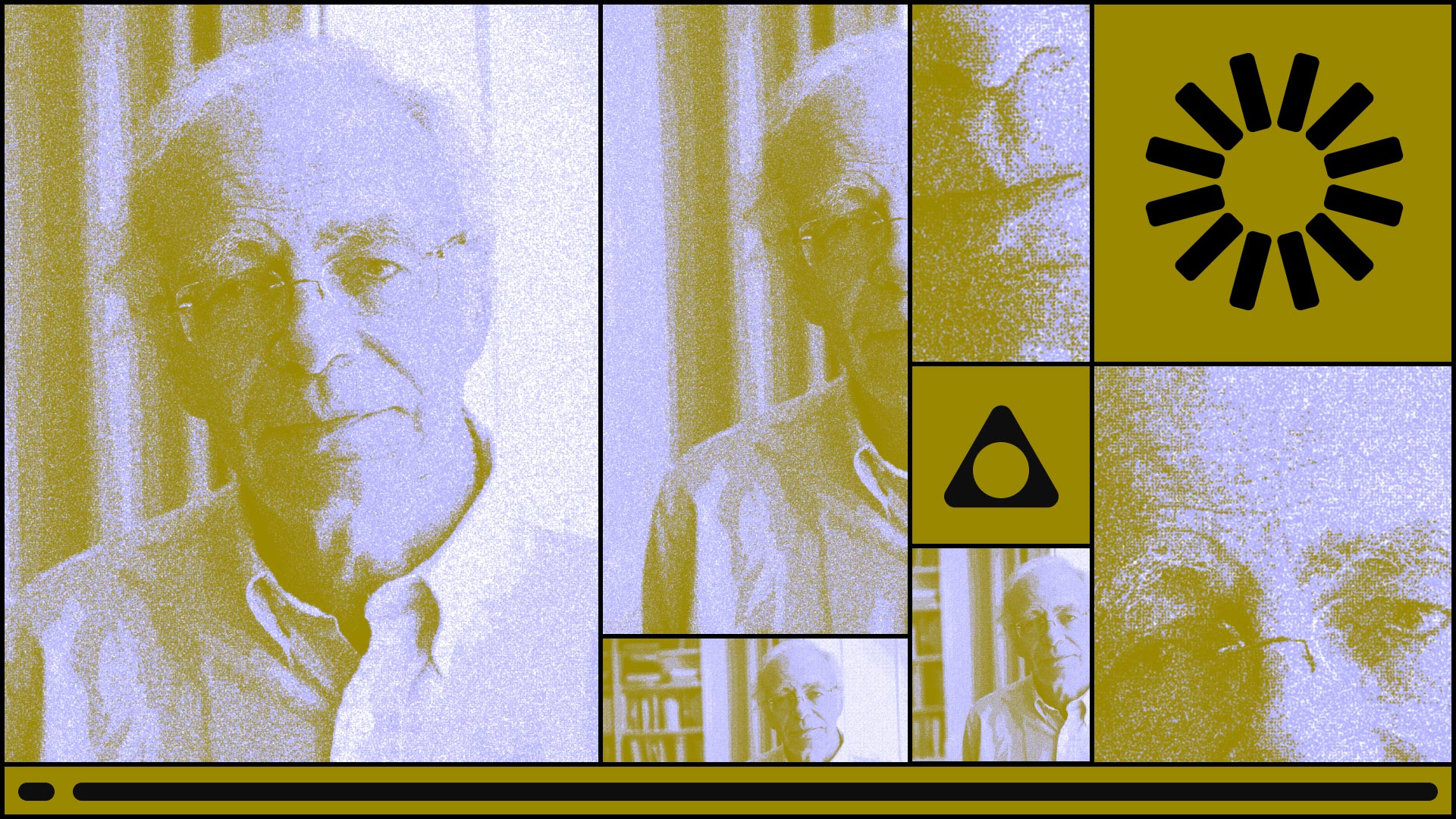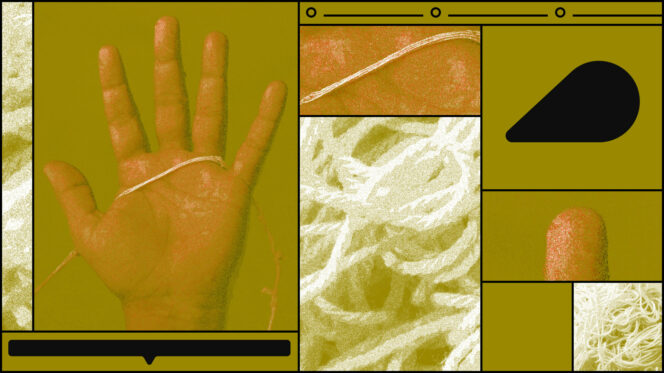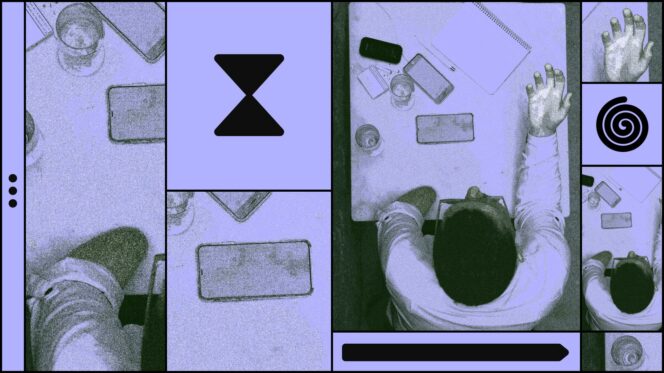So What’s the Problem With Peter Singer?
Discrimination is quite literally killing disabled people, now more than ever.
by Lucy Burke
18 November 2021

Listen to this article as audio:
Six out of 10 people who have died during the pandemic in the UK were disabled. Disability discrimination has been normalised every time “underlying health conditions” has been evoked to explain away a death, and this fundamental failure to recognise the equal value of disabled people’s lives sits within a broader context of ten years of austerity and an ideological war on anyone in receipt of state support.
Cuts to health and social care funding have been linked to 120,000 excess deaths since 2010. Meanwhile, the pandemic has exposed and exacerbated the “grave and systemic violations” of disabled people’s rights that were identified by a UN committee investigation of the British government in 2016, most significantly the basic right to life via access to critical care. It is not an overstatement to say discrimination is literally killing disabled people in this country.
You can’t disagree with this.#BBCQT pic.twitter.com/WKB8kmu4C3
— Jeremy Corbyn (@jeremycorbyn) September 19, 2019
It is in this context that media coverage of the work of utilitarian philosopher Peter Singer feels not only inappropriate but deeply insensitive to disabled people. Media engagement with Singer, including Novara Media, has tended to focus on his highly influential work on animal rights and his views on veganism. Singer is notable for arguing that personhood – an attribution that provides rights, protections, privileges, and moral consideration – should be extended to non-human animals such as primates that exhibit specific characteristics: self-awareness; the capacity to plan, form alliances and relationships, manifest grief and anger; and to learn sign language.
But most engagement with Singer’s philosophy of personhood fails to fully acknowledge the significance of his work in contributing to a culture in which the value of disabled peoples’ lives is viewed as a matter for debate rather than a given, and reflects a broader failure to engage meaningfully with disability activism and activists whose work has, for example, been vital in challenging the economic and ideological justifications of austerity and highlighting its brutal human costs.
Personhood.
The significance of Singer’s philosophy is that it decouples the concept of personhood from ‘species-being’, enabling the philosopher to argue that some non-human animals should be endowed with the rights and protections that personhood affords. But the separation of the category of personhood from species (ie being a human) is also central to Singer’s work on the impact of modern medical technologies on traditional ethical assumptions.
In his book Rethinking Life and Death, Singer argues that the religious principle of the “sanctity of life” is increasingly redundant in a world in which life can be sustained artificially, for example on a mechanical ventilator. Instead, he argues that decision-making at both the beginning and end of life should be informed by his criterial view of personhood: in other words, whether the human whose life is in question possesses the specific attributes Singer associates with personhood – rationality, self-awareness, being able to perceive oneself through time, anticipating and desiring a future, and fear of death.
Many people find Singer’s work, particularly his contribution to the animal rights movement, compelling. However, whilst a lot of us might agree that the extension of personhood to the great apes is entirely justified, Singer also uses the ethical dilemmas presented by new medical technologies to make a case for the permissibility of infanticide of disabled babies up to a month after birth on the basis that infants are not yet “persons”. Singer acknowledges parental choice in this situation, but his argument goes beyond simply suggesting that killing disabled infants (such as those born with conditions such as spina bifida) is ethically permissible, to arguing that in some cases it is right to end those lives. In a much-quoted passage in his book Practical Ethics, for instance, he argues:
When the death of a disabled infant will lead to the birth of another infant with better prospects of a happy life, the total amount of happiness will be greater if the disabled infant is killed. The loss of happy life for the first infant is outweighed by the gain of a happier life for the second. Therefore, if killing the haemophiliac infant has no adverse effect on others, it would, according to the total view, be right to kill him.
Singer is not talking here about infants born with conditions that are incompatible with life itself, but about infants with, for example, Downs Syndrome – a condition that is entirely compatible with a life as diverse, rich and various as any other person’s. His justification is based on an assumption that disability is only a cause of suffering, that being disabled is incompatible with a good quality of life, that it can only negatively impact upon the quality of life of a disabled person’s family, and that it presents an unnecessary social/economic burden. Infanticide is offered as a rational solution to the ‘problem’ of disability, as if killing a disabled baby and replacing them with a non-disabled sibling is an obvious, easy and sensible choice.
Disabled people have tried on numerous occasions to engage with Singer, to challenge the idea that a disabled life is diminished and characterised solely by loss, deficit or suffering. He has participated in these conversations, but his view of disability remains unchanged, although he acknowledges that using the phrase “defective” to describe disabled children is no longer acceptable. Yet he maintains a particularly visceral distaste for the lives of learning-disabled people, comparing them to dogs and pigs, and most recently justifying rape on the basis that if someone is incapable of understanding “informed consent” there is no moral harm in subjecting that person to non-consensual sex.
A recent article in the British Medical Journal sets out the inequalities experienced by learning-disabled people admitted to hospital with Covid-19 in comparison with the general population. It reveals that they were 37% less likely to receive non-invasive respiratory support, 40% less likely to be intubated, and 50% less likely to receive critical care in an intensive care unit. They had a 56% increased risk of dying in hospital and died more quickly even when their general health prior to hospitalisation was better than their non-disabled comparators. The authors of the paper conclude that these excess deaths are the result of “significant disparities in healthcare”.
From a disability rights perspective, indeed from any position which claims to have a commitment to equality at its core, Singer’s view of disability is unconscionable and profoundly dangerous, entangled as it is with the economic logic of his brand of preference utilitarianism. We have seen the deathly consequences of this kind of assumption about disabled people’s lives played out during the pandemic in the imposition of do-not-resuscitate notices and the rationing of treatment and access to critical care. Singer should be held to account for these views and their influence. We will never achieve equality and social justice for all whilst disabled people’s experiences, agency and oppression are marginalised or erased within social movements and the media.
Lucy Burke is a researcher in the field of disability studies and the critical medical humanities, and a trade union and disability activist.
This article is part of a focus on disability. Read more here.


